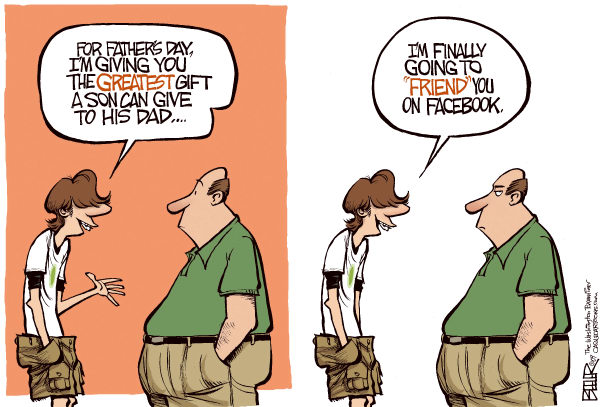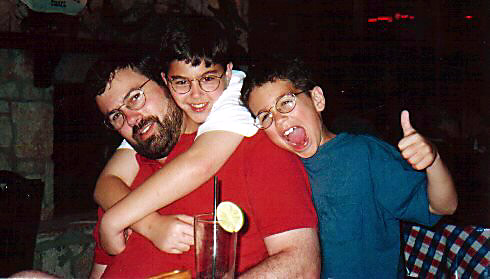The World seems very “Us” versus “Them”... But are we really that different?
The six largest religions in the world are Christianity, Islam, Judaism, Hinduism, Buddhism, and Sikhism.
If you stripped away doctrine, what patterns might emerge in the world’s great sacred texts?
Similarity in Diversity.
We often think about the differences between religions. However, a deep review of their sacred texts shows striking similarities (and may be indications of a more integral “truth”).
Below is a word cloud for each of those religions based on their primary religious text. A word cloud is a visual map of language where the size and boldness of a word reflect its frequency in the text. In this case, the image spotlights the most frequent words across different religious texts (e.g., Jewish Bible, Christian New Testament, Quran, Hindu Vedas, Buddhist Tripitaka, Sikh Guru Granth Sahib).
Each panel highlights high-frequency terms like Lord, God, man, people, Israel, Indra, Agni, Allah, fortunate, Guru, etc., with the most frequently used words appearing larger and bolder. A visualization, like this, makes it easy to identify the recurring themes or focal points of each tradition.
So, here is a closer look at what a word cloud of the world’s religions reveals if we strip away doctrine and focus only on frequency.
teddyterminal via Reddit
On one level, this post explores both the similarities and limits of religious texts via word clouds.
As historian Yuval Harari notes, “Humans think in terms of stories, not statistics.” Those word clouds are the beginnings of narratives that go beyond the numbers. For example, shared words don’t mean shared values. The word ‘love’ in one tradition may imply obedience, while in another it means self-transcendence.
The Power and Pitfalls of Translation
Likewise, translating sacred texts into English makes them more accessible, but can distort meaning and nuance. As an illustration, if you noticed the name “Keith” at the bottom of the Hinduism word cloud, it’s because that was the translator’s name. You might also have seen the word “car” in the Hinduism cloud, that is not an anachronism or prophecy... it is just another old-fashioned word for “chariot”.
It’s also worth acknowledging that this word cloud is from the English translations, so some words that may mean slightly different things in other languages can be all translated to one word in English. For example, it’s very common in Biblical Hebrew to see different words translated into the same English word. Examples include Khata, Avon, and Pesha – three different “ways of committing a wrong” that may all be translated to the same English word.
Distortions like these occur across many texts and cultures. In other words, similarities in word usage do not always reflect shared values. Recognizing this helps us navigate between the boundaries of certainty and uncertainty.
This brings to mind an ancient parable …
The Parable of Perspectives – Lessons from the Elephant
I’ve always loved the parable of the blind men and the elephant. While there are many versions, here’s broadly how it goes:
A group of blind men heard that a strange animal, called an elephant, had been brought to the town, but none of them were aware of its shape and form. Out of curiosity, they said: "We must inspect and know it by touch, of which we are capable". So, they sought it out, and when they found it they groped about it. The first person, whose hand landed on the trunk, said, "This being is like a thick snake". For another one whose hand reached its ear, it seemed like a kind of fan. As for another person, whose hand was upon its leg, said, the elephant is a pillar like a tree-trunk. The blind man who placed his hand upon its side said the elephant, "is a wall". Another who felt its tail, described it as a rope. The last felt its tusk, stating the elephant is that which is hard, smooth and like a spear.
This parable highlights that even when everyone is “blind” to the whole truth, each perspective still holds real insight. Recognizing that partial views are still valuable can drive innovative, integrative thinking.
The blind men and the elephant parable also reminds us of the limitations of individual perspectives and the value of integrating multiple viewpoints. Interestingly, that integration is one of the things large language models are best at ... and helping humans access a perspective of perspectives might be a step towards enlightenment.
Future societies may see it as obvious that synthesizing perspectives (religious, cultural, strategic) can be done by advanced AI at scale, transforming how we resolve complex disputes.
Hope that helps.
Oh, and as a thought experiment ... What would the word cloud of your own guiding beliefs look like?



Digesting a Bigger Future
We live in a world where technology changes quickly and often, while human nature remains relatively unchanged.
For most of us, human nature is the key variable.
I suspect Henry Ford focused on that when he said, "Whether you think you can or you think you can't. You're right."
Processing the possibilities of tomorrow is often difficult for humans. Part of the problem is that we're wired to think locally and linearly. It's a monumental task for us to comprehend exponential growth, let alone its implications. For example, consider what happened to seemingly smart and forward-looking companies like Kodak, Blockbuster, and RadioShack.
The world changes quickly.
Change is constant. The wheels of innovation and commerce spin ever-faster (whether you're ready for it or not).
As a practical matter, it means that you get to choose between the shorter-term pain of trying to keep up ... or the longer-term pain of being left behind. Said another way, you have to choose between chaos and nothing.
It's hard to keep up – and even harder to stay ahead.
Personally, I went from being one of the youngest and most tech-savvy people in the room to a not-so-young person close to losing their early-adopter beanie. Sometimes it almost seems like my kids expect me to ask them to set my VCR so it stops flashing 12:00 AM all day.
My company may not be doing "rocket science", but it's pretty close. We utilize exponential technologies, such as high-performance computing, AI, and machine learning, to amplify intelligence and make data-driven, evidence-based decisions in real-time, all the time.
But, as we get "techier," I get less so ... and my role gets less technical, over time, too.
Due to my age, experience, and tendency to be a pioneer, I've been battling technology for decades.
Don't get me wrong, technology has always been my friend, and I still love it. But my relationship with it is different now.
I recognize that there are things that change and things that stay the same. And for me, the things that "stay the same" tend to be more important.
Paradoxically, the part of me that stays the same can still change and grow – that is how you become more (and a more evolved version) of that thing.
The Bigger Picture
My father said that not worrying about all the little details helped him see the bigger picture and focus on what was possible.
You don't have to focus on the technological details to predict its progress. Anticipating what people will need is a great predictor of what will get built. That means predicting "what" is often easier than predicting 'how'.
Why is that often the case? Because technology that solves a problem is more profitable and popular than technology searching for a problem to solve.
Here's a video from 1974 of Arthur C. Clarke making some remarkably accurate predictions about the future of technology.
via Australian Broadcasting Corporation
Artificial Intelligence, quantum computing, augmented reality, neuro-interfaces, and a host of exponential technologies are going to change the face and nature of our lives (and perhaps life itself). Some of these technologies have become inevitabilities ... but what they enable is virtually limitless.
Where do you see this going?
Onwards.
Posted at 09:22 PM in Business, Current Affairs, Film, Gadgets, Ideas, Just for Fun, Market Commentary, Personal Development, Science, Trading, Trading Tools, Web/Tech | Permalink | Comments (0)
Reblog (0)